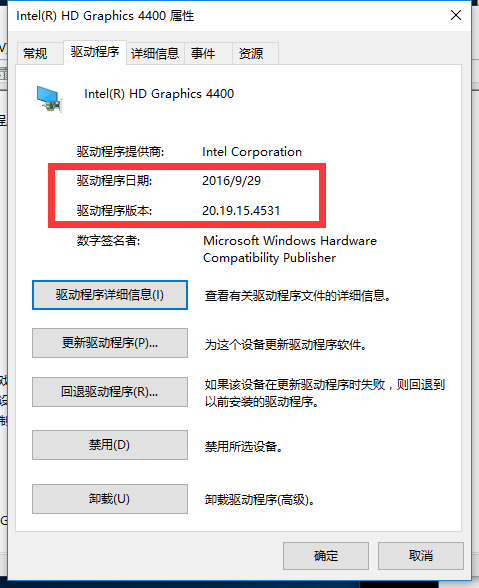怎么抓取系统驱动版本
比如VGA,audio,lan的驱动版本和日期
只要定位到系统对应的文件就好了
有没有专门的API函数获取?
http://bbs.csdn.net/topics/80501898
Properties p=System.getProperties();//获取当前的系统属性
p.list(System.out);//将属性列表输出
System.out.print("CPU个数:");//Runtime.getRuntime()获取当前运行时的实例
System.out.println(Runtime.getRuntime().availableProcessors());//availableProcessors()获取当前电脑CPU数量
System.out.print("虚拟机内存总量:");
System.out.println(Runtime.getRuntime().totalMemory());//totalMemory()获取java虚拟机中的内存总量
System.out.print("虚拟机空闲内存量:");
System.out.println(Runtime.getRuntime().freeMemory());//freeMemory()获取java虚拟机中的空闲内存量
System.out.print("虚拟机使用最大内存量:");
System.out.println(Runtime.getRuntime().maxMemory());//maxMemory()获取java虚拟机试图使用的最大内存量
Properties props=System.getProperties(); //系统属性
System.out.println("Java的运行环境版本:"+props.getProperty("java.version"));
System.out.println("Java的运行环境供应商:"+props.getProperty("java.vendor"));
System.out.println("Java供应商的URL:"+props.getProperty("java.vendor.url"));
System.out.println("Java的安装路径:"+props.getProperty("java.home"));
System.out.println("Java的虚拟机规范版本:"+props.getProperty("java.vm.specification.version"));
System.out.println("Java的虚拟机规范供应商:"+props.getProperty("java.vm.specification.vendor"));
System.out.println("Java的虚拟机规范名称:"+props.getProperty("java.vm.specification.name"));
System.out.println("Java的虚拟机实现版本:"+props.getProperty("java.vm.version"));
System.out.println("Java的虚拟机实现供应商:"+props.getProperty("java.vm.vendor"));
System.out.println("Java的虚拟机实现名称:"+props.getProperty("java.vm.name"));
System.out.println("Java运行时环境规范版本:"+props.getProperty("java.specification.version"));
System.out.println("Java运行时环境规范供应商:"+props.getProperty("java.specification.vender"));
System.out.println("Java运行时环境规范名称:"+props.getProperty("java.specification.name"));
System.out.println("Java的类格式版本号:"+props.getProperty("java.class.version"));
System.out.println("Java的类路径:"+props.getProperty("java.class.path"));
System.out.println("加载库时搜索的路径列表:"+props.getProperty("java.library.path"));
System.out.println("默认的临时文件路径:"+props.getProperty("java.io.tmpdir"));
System.out.println("一个或多个扩展目录的路径:"+props.getProperty("java.ext.dirs"));
System.out.println("操作系统的名称:"+props.getProperty("os.name"));
System.out.println("操作系统的构架:"+props.getProperty("os.arch"));
System.out.println("操作系统的版本:"+props.getProperty("os.version"));
System.out.println("文件分隔符:"+props.getProperty("file.separator")); //在 unix 系统中是"/"
System.out.println("路径分隔符:"+props.getProperty("path.separator")); //在 unix 系统中是":"
System.out.println("行分隔符:"+props.getProperty("line.separator")); //在 unix 系统中是"/n"
System.out.println("用户的账户名称:"+props.getProperty("user.name"));
System.out.println("用户的主目录:"+props.getProperty("user.home"));
System.out.println("用户的当前工作目录:"+props.getProperty("user.dir"));
我想到个注册表去读
http://blog.csdn.net/greless/article/details/72867700